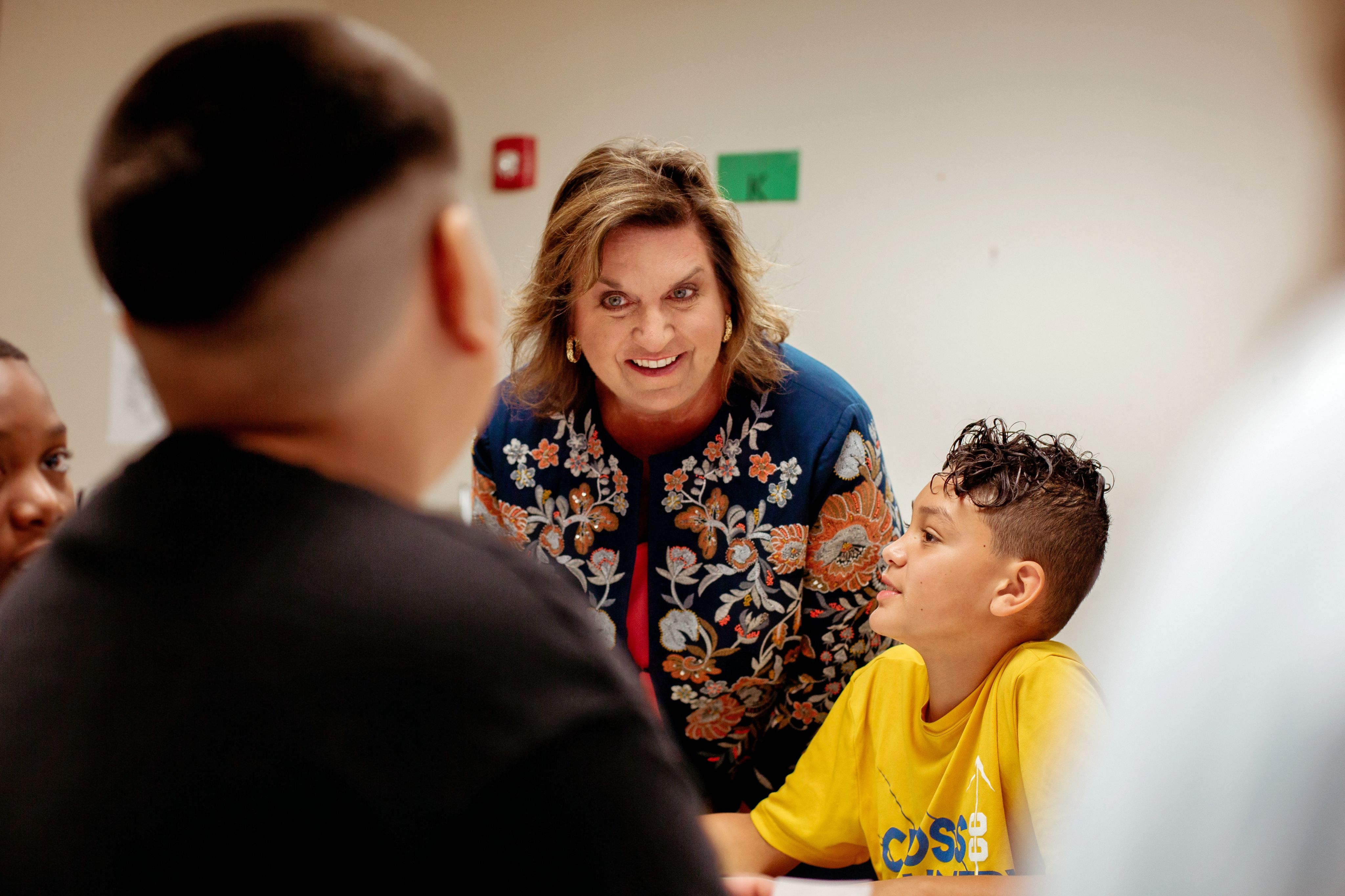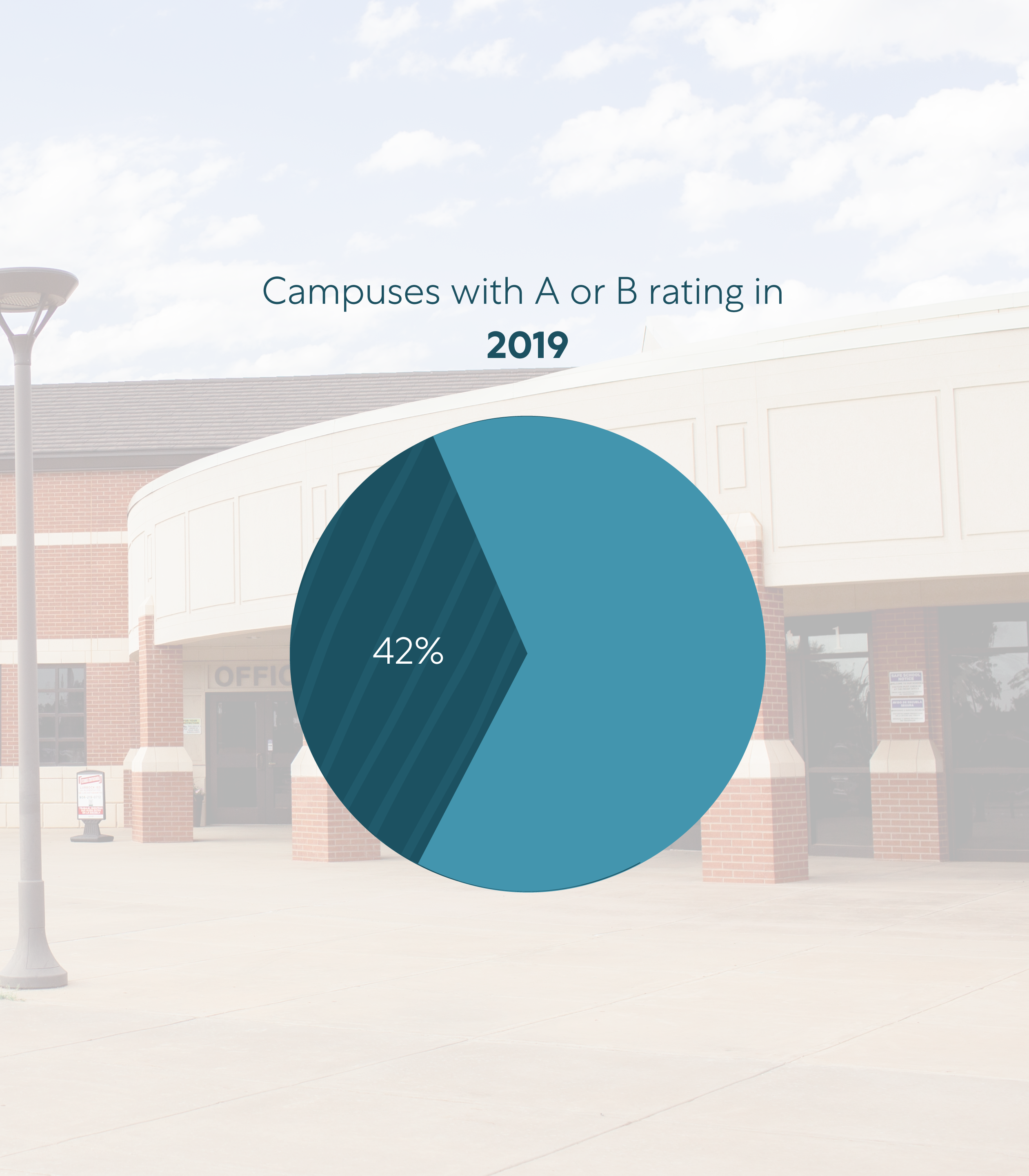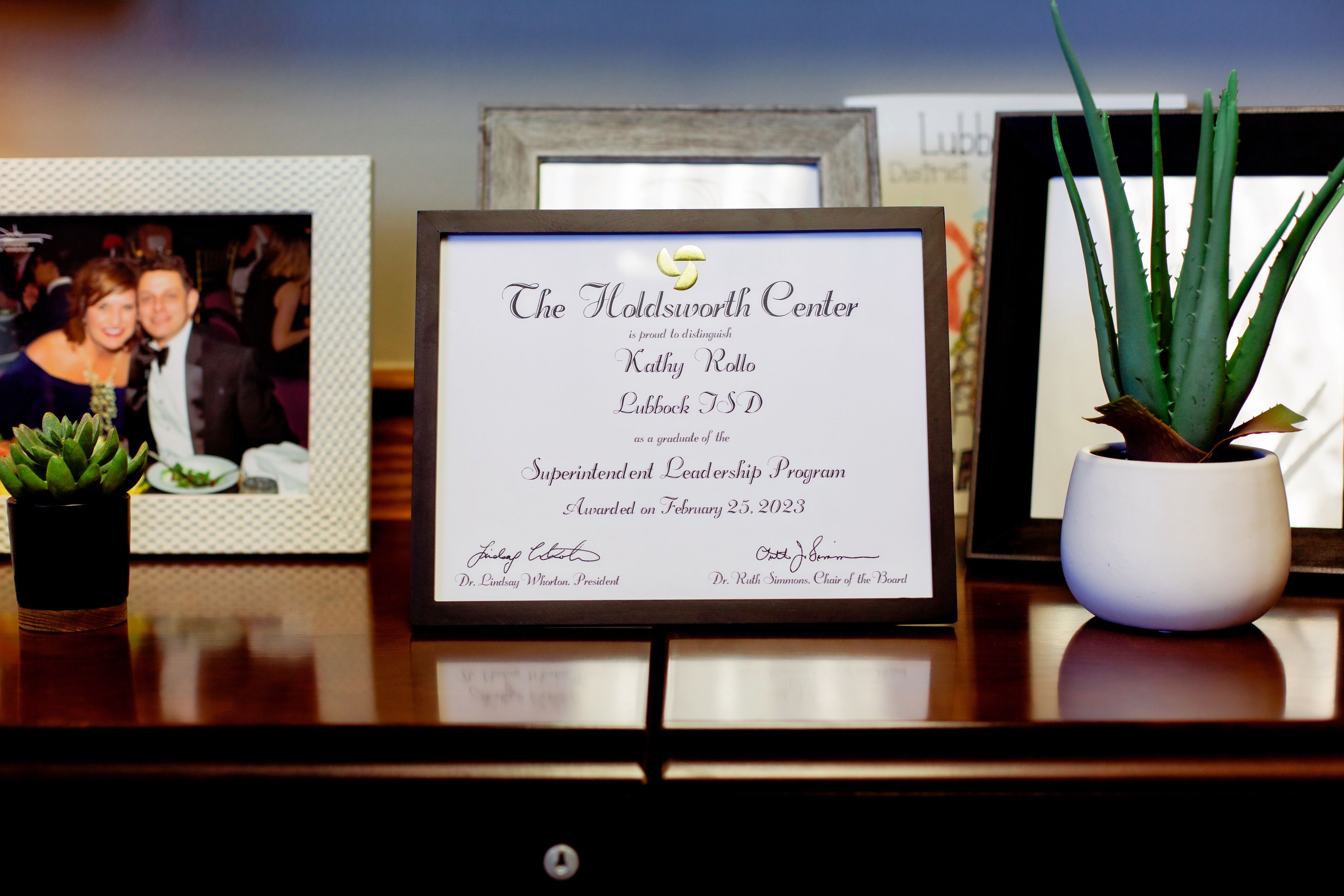Stepping into the hot seat
Superintendents need more support for a high-stakes role

This story contains audio components.
To begin, click the yellow play button and continue to scroll.



Lubbock ISD Superintendent Kathy Rollo is standing in the Dupre Elementary cafeteria in the fall of 2021 looking out at a packed house. People are crammed onto bench seats and standing against walls.
The energy feels tense and on edge. They aren’t going to like what she has to say.
She delivers the news just as she rehearsed. Lubbock ISD will be closing Dupre due to low enrollment. Students will have the option to attend one of two nearby schools that are better staffed and can offer more services, special programs and extracurricular activities.
Immediately, people begin interrupting her presentation and using the Q&A to vent their frustration.
As the meeting draws to a close, she hears someone scream,
"You are not a woman of integrity!"


To be safe, the police chief pulls her car closer to the door. She rides home with her husband feeling physically shaken.
She knows the furor isn’t really about Dupre. Candidates running for mayor and school board have staked out school closures as a campaign platform and Dupre got caught in the middle.
But it's hard not to take it personally. She's spent her entire childhood and most of her adult career in Lubbock ISD. How could anyone question her commitment to doing what's right for the kids in a community she loves?
Her phone dings. It's a text from Roosevelt Nivens, a superintendent friend from Houston she met through a leadership program at The Holdsworth Center:
She smiles. She doesn't know how she would make it without the support and guidance of her Holdsworth team – the peers in her cohort, her coach, the learning sessions in Austin that give her time and space to practice critical skills like communication.
Like Rollo, most superintendents come up through the system as teachers, then principals, then central office administrators. None of these roles prepare them for the reality of being the CEO of an entire district.
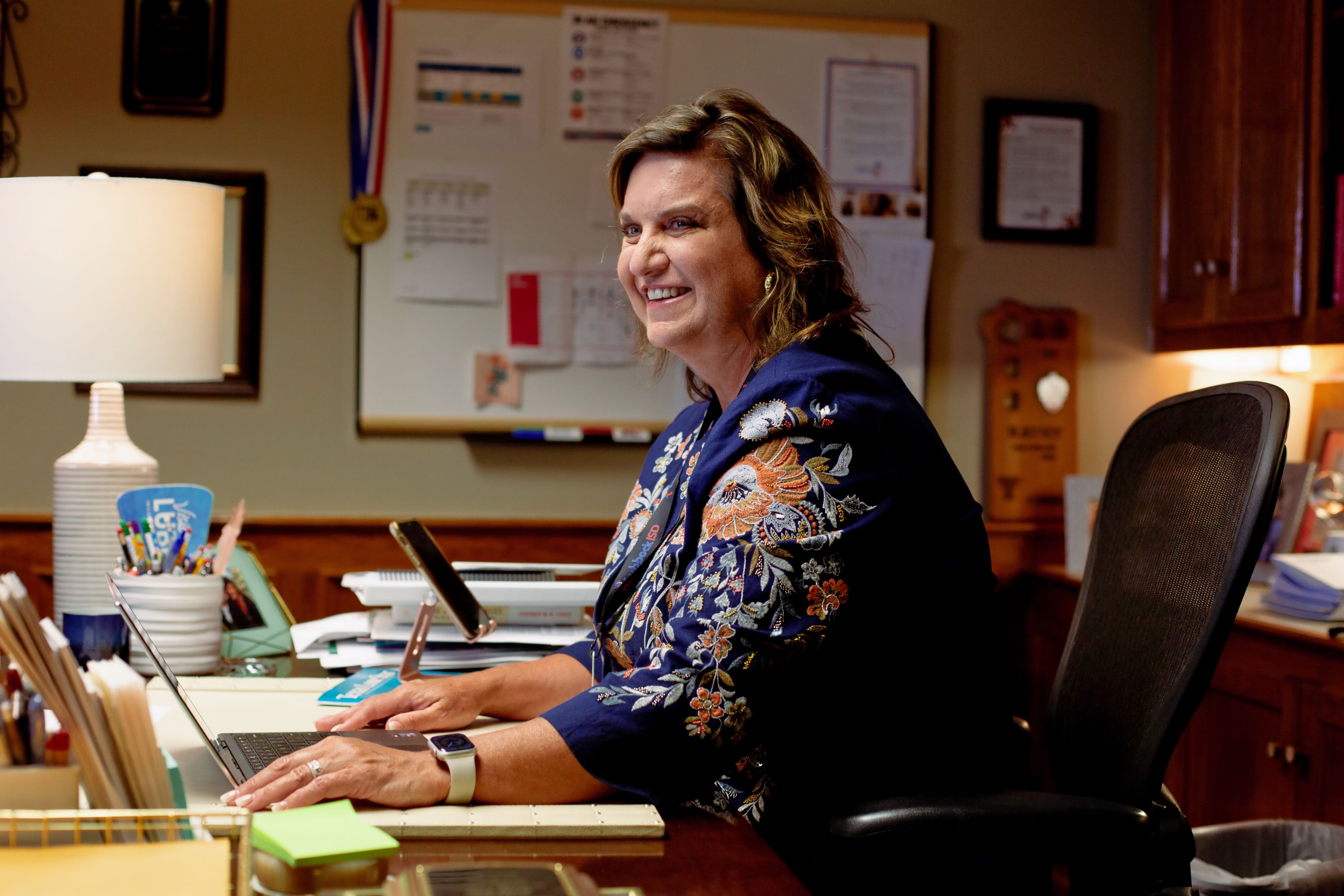
I didn't really understand what the role was until I was actually in the seat. Navigating the political landscape has been the biggest 'aha' surprise for me. And it's probably something that has led to more and more superintendents deciding to either retire or do something different.

A complex job
Strong headwinds have battered public education over the past few years: COVID disrupted student health and well-being and led to unfinished learning. Teacher and staff shortages are setting off alarm bells across the nation, and communities have become increasingly polarized over how to accomplish schools’ essential work.
These forces have not created new realities. They have exacerbated problems that have built up over generations.
And they’ve made the job of leading a school district much more complex.
“Many, many, many years ago, I think it (the role of a superintendent) was a political figurehead. You know, kiss(ed) the babies, went to the football games and did all the great things, and it worked,” said Misty Rieber, Lubbock ISD’s chief academic officer.
But now the political pieces – even in Sweet West Texas where we haven't had that before, it’s here too – means that every decision you make, there's some group that will be vocal and upset for whatever reason. Trying to do right for kids and navigate that – there's never a space where it's just easy.

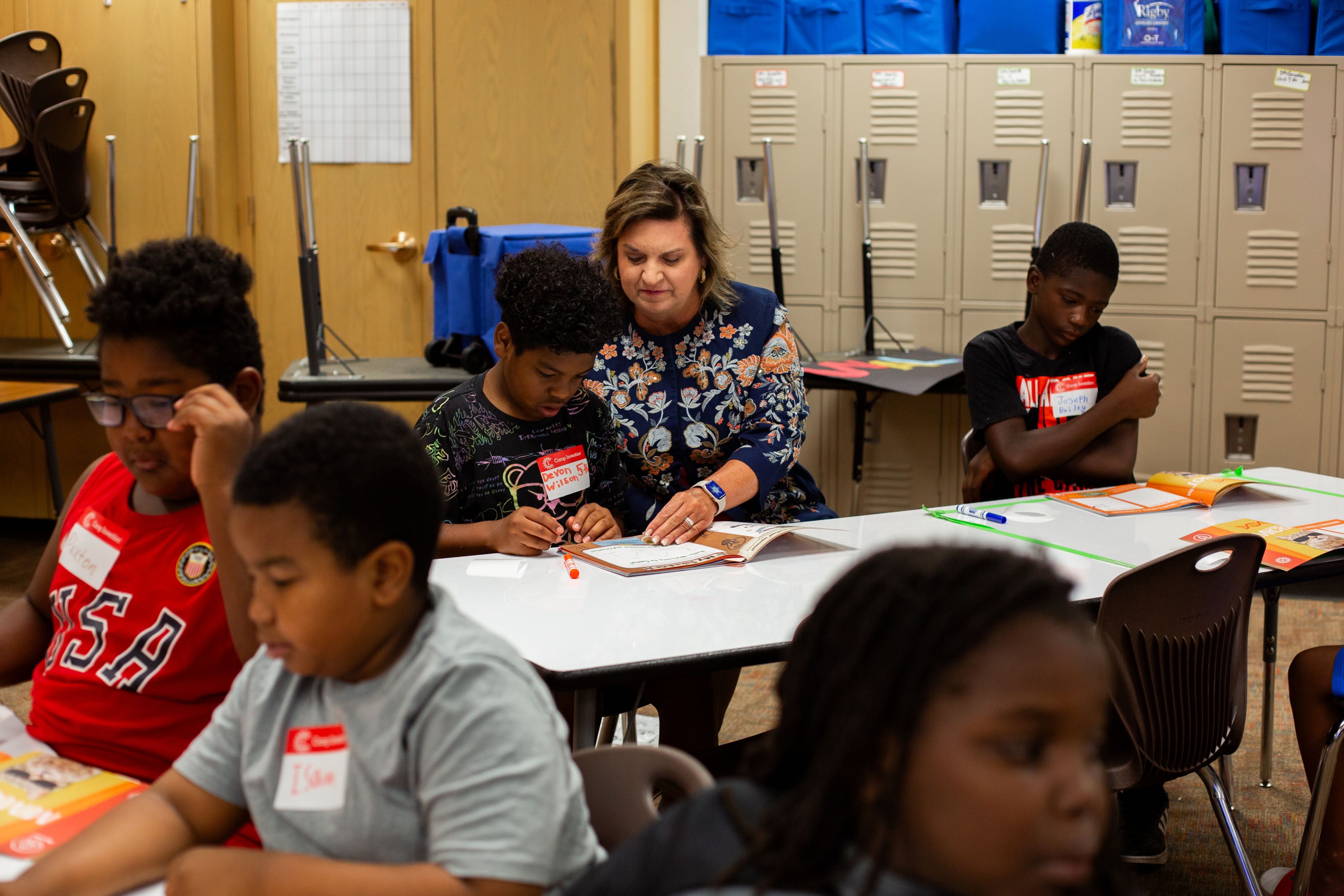
Setting the tone
And yet the stakes to get it right have never been higher.
Do you care about the kids that live in your community? Then you want to support having an incredibly strong, powerful, consistent superintendent. That sets the tone for everything. That sets the tone for staffing, it sets the tone for teaching, it sets the tone for dreaming. We keep talking about the skills that we want kids to have. If you don't have someone who exemplifies those skills in leadership, then you can't build those skills up in kids.
Increasingly, those leadership skills are centered around listening and communicating with diverse stakeholders like taxpayers, trustees, parents, students and staff.
Superintendents must get comfortable in the spotlight, spend lots of time out in the community building relationships and learn to value feedback, even when it’s delivered in ways that may be hard to hear. While leaders may come into the role with natural strengths, they can get better with practice, just like athletes, chess players or students.
Superintendents have to continue to invest in their own learning. It's not an end-all, be-all job where you get in the seat and you know everything. I can't just stay in this office with the door closed and work on spreadsheets all day. Number one, I'd be miserable. But number two, I'm not learning and growing if I do that. When my team and our teachers see me learning and growing, I'm modeling that for others and I think that's really important.
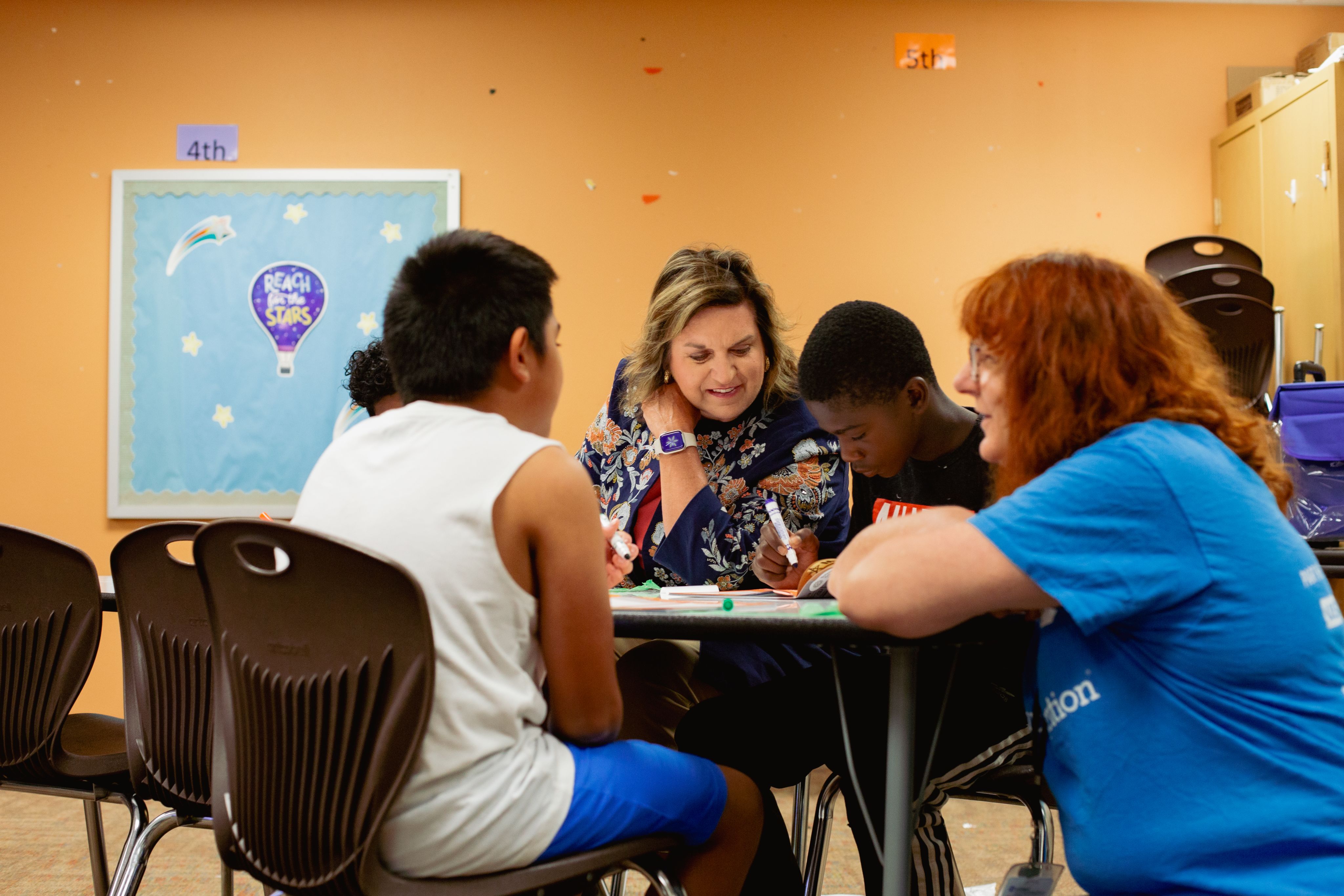
A space to learn and grow
For Rollo and 87 other Texas superintendents who are enrolled in or are alumni of Holdsworth programs, the Center provides a space to learn, grow and practice key skills.
Leaders are plugged into a community of peers to lean on for support and receive coaching from former superintendents who have recently retired from the seat.
When Rollo came to Holdsworth in 2021, she had already decided to recommend closure for Dupre. But when it came to doing the hard work of communicating it to the community, she needed four crucial elements – learning, practice, coaching and support.
At Holdsworth, that’s what she got.
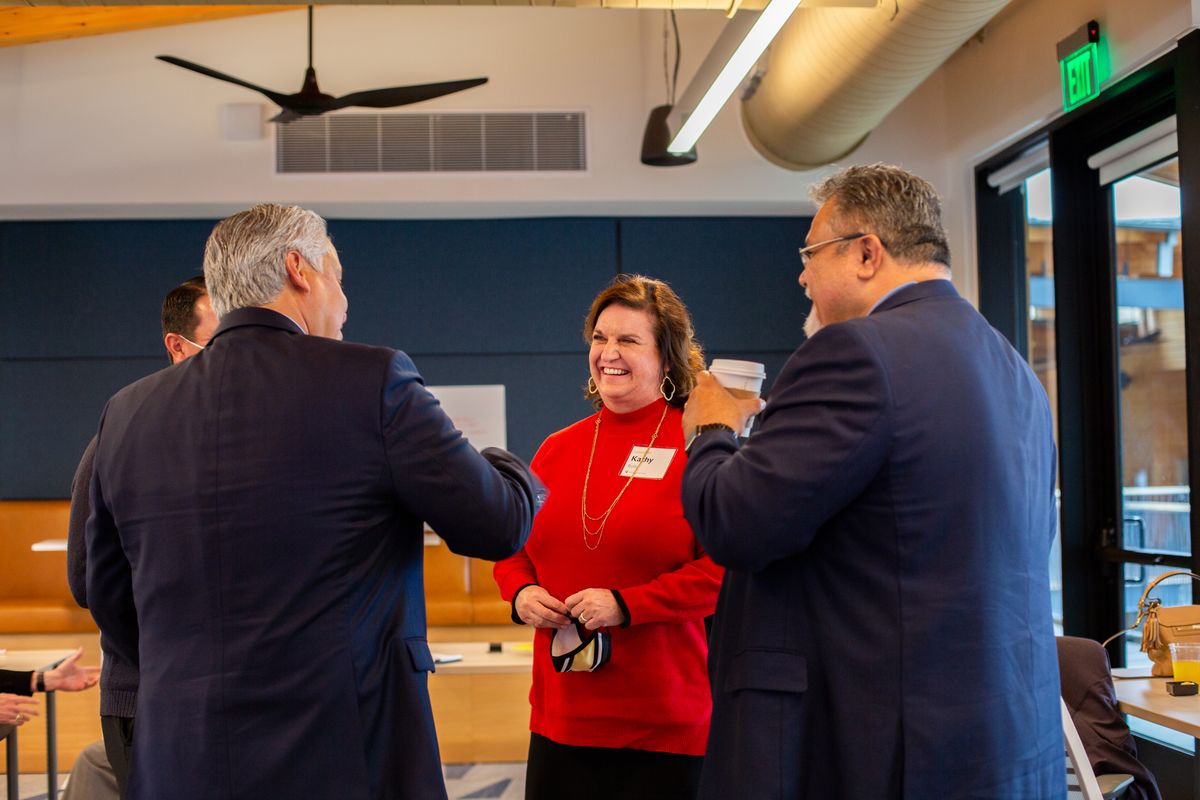
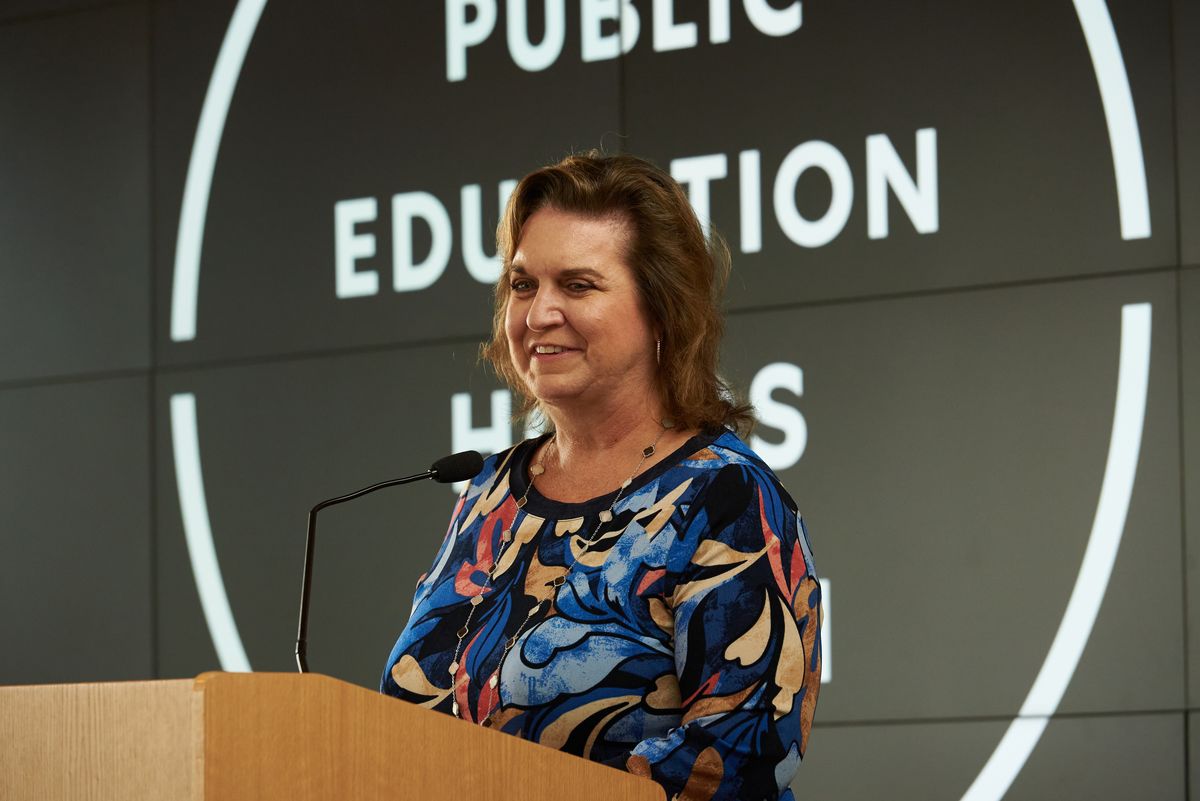
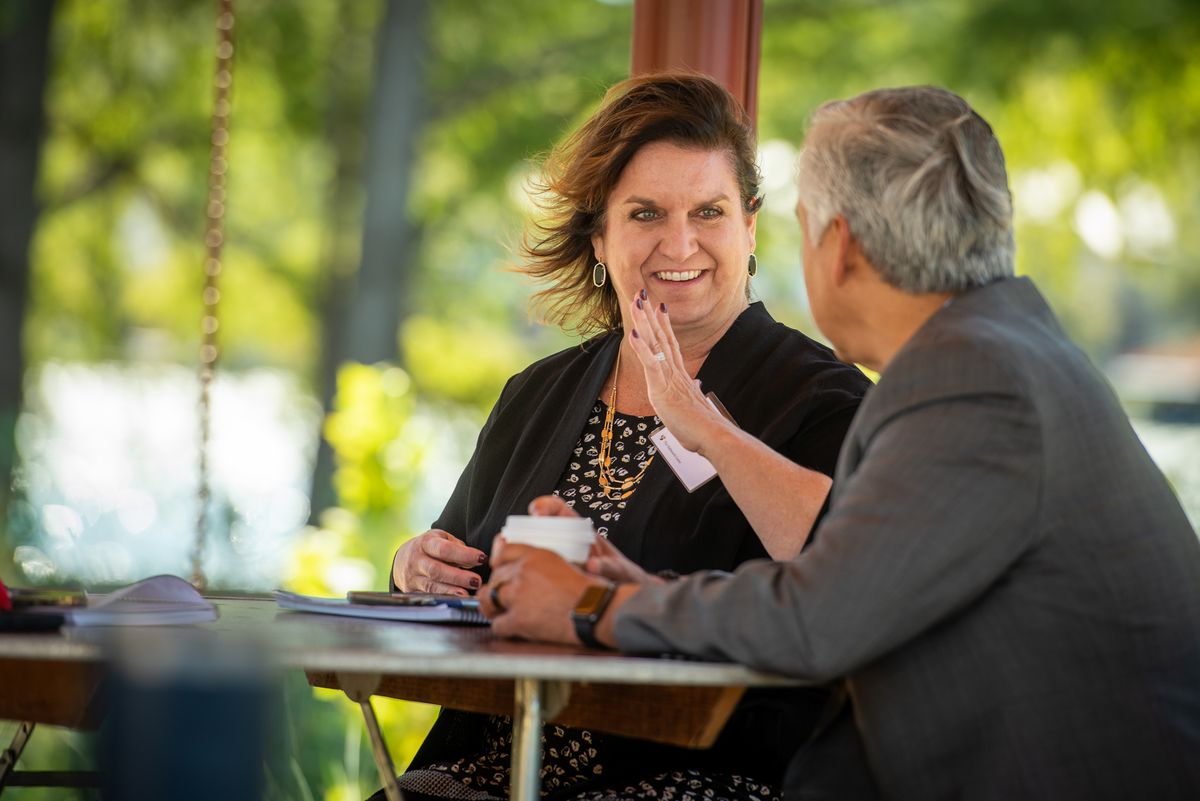
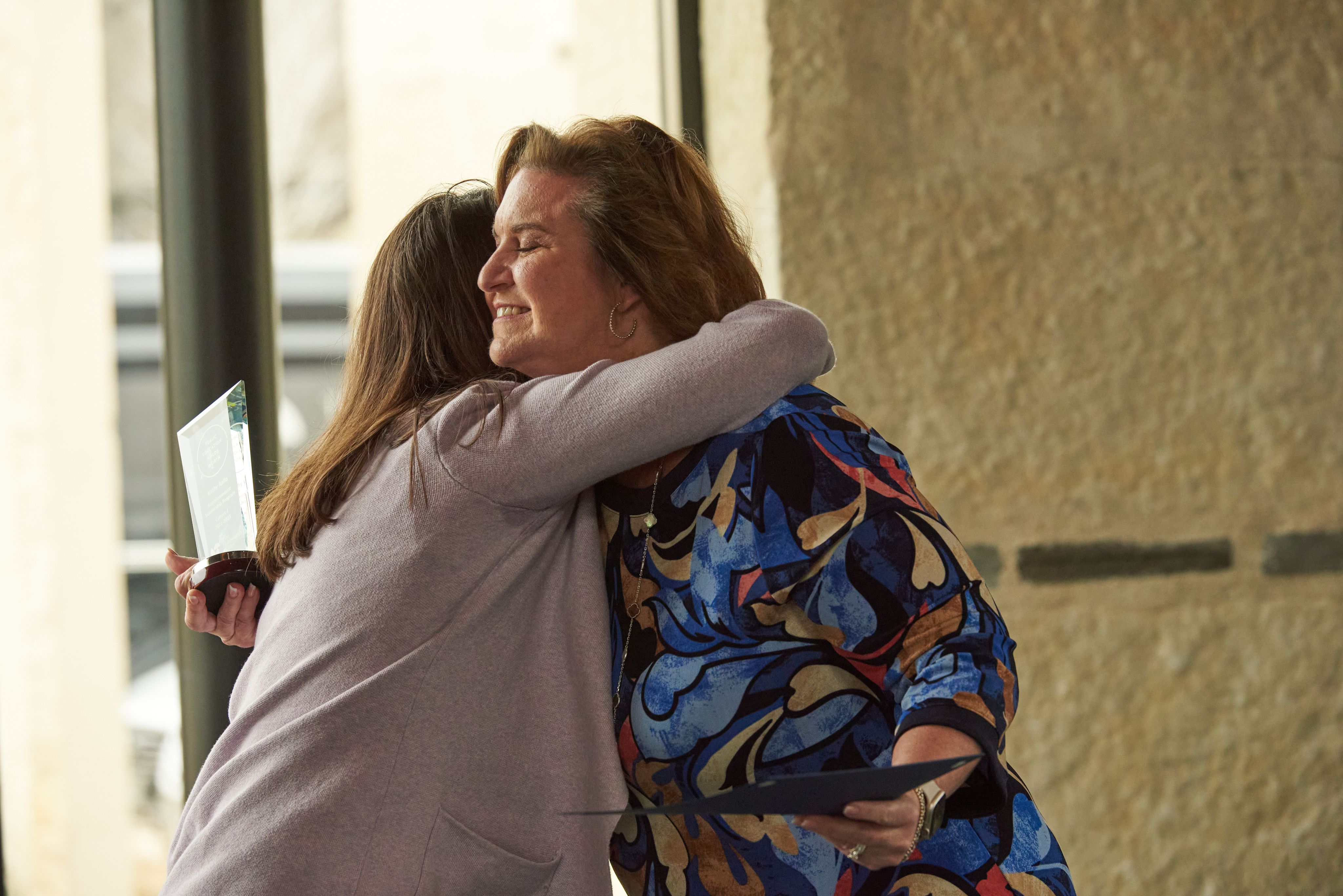
Just before the public meeting, Rollo attended a learning session on communication at Holdsworth’s Campus on Lake Austin. She was able to draft remarks, get feedback from experts and rehearse the presentation before delivering it to a live audience.
Her coach, Dr. Art Cavazos, gave her great advice on how to field questions and remain calm under pressure. Before and after the meeting, superintendent friends from other districts checked in and offered encouraging words.
Later, when she shared the news at another public meeting that the district would convert Dupre Elementary to an early childhood center, many of the same people who were yelling before were now applauding.
“I think we just had to get through that rocky period,” Rollo said. “At the end of the day, good things were happening for kids.”
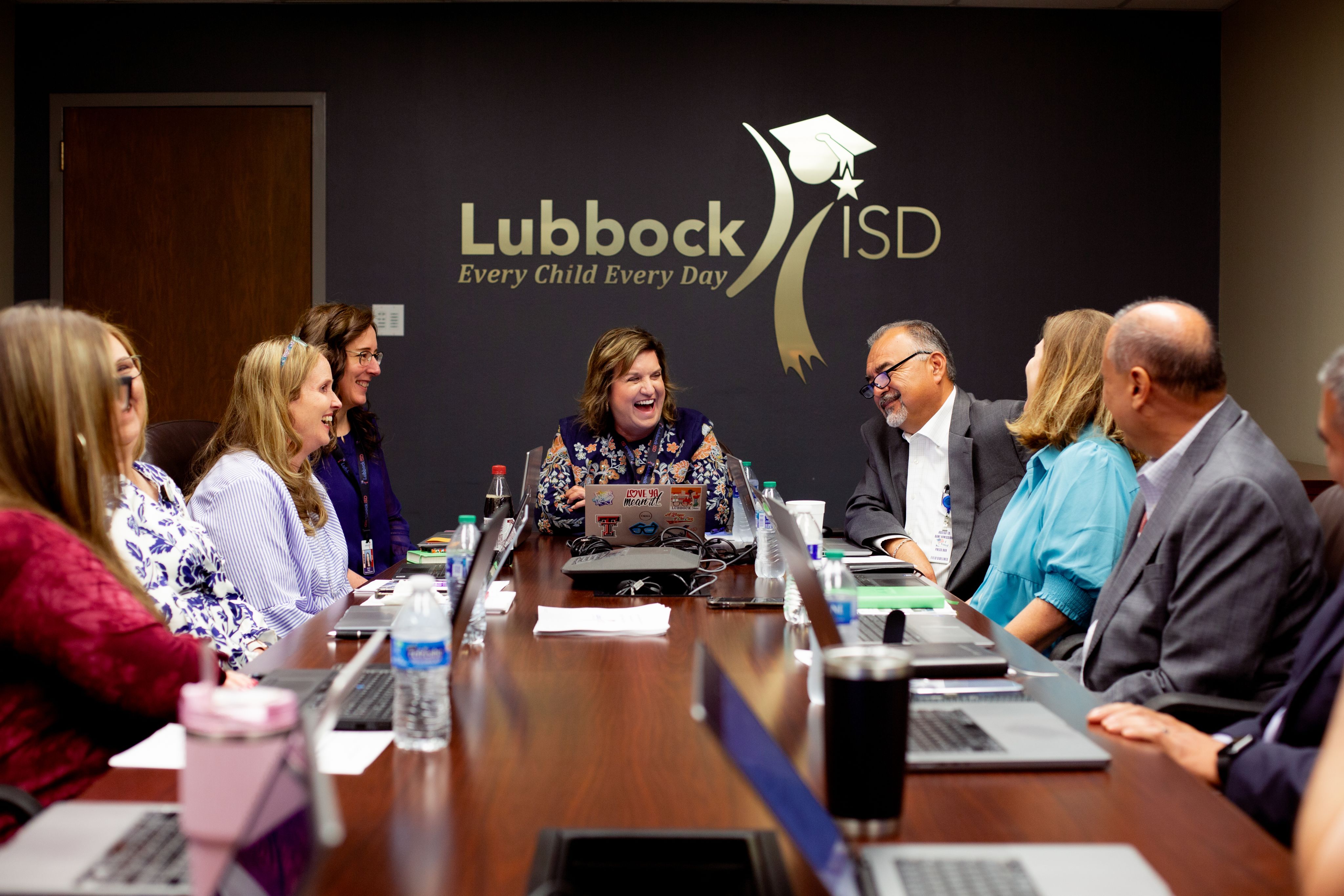
Changing lives
Dupre wasn’t the only hard decision Rollo has had to make.
Because enrollment is declining and funding for public schools is still being debated in the legislature, passing a balanced budget this year meant Lubbock ISD had to make cuts and forgo raises for teachers – which hurts.
Rollo has tried to be upfront with staff and community members about the challenges posed by declining enrollment and has included key stakeholders in the decision-making process.
Rick Rodriguez, chief operations officer, admires the way Rollo has handled the tough calls, balancing optimism with realism while sticking to her decisions.
She took the hard road, which is to come out, seek input and take hits all along the way. It showed the community that, 'I am willing to hear you and I’m willing to listen, and I need to hear all those different opinions.' I'm very proud of her, of her actions that she's taken. I'm humbled to serve under her leadership. And, there'd be no other person that I would want to do the things that we do on a daily basis than to do it with her.

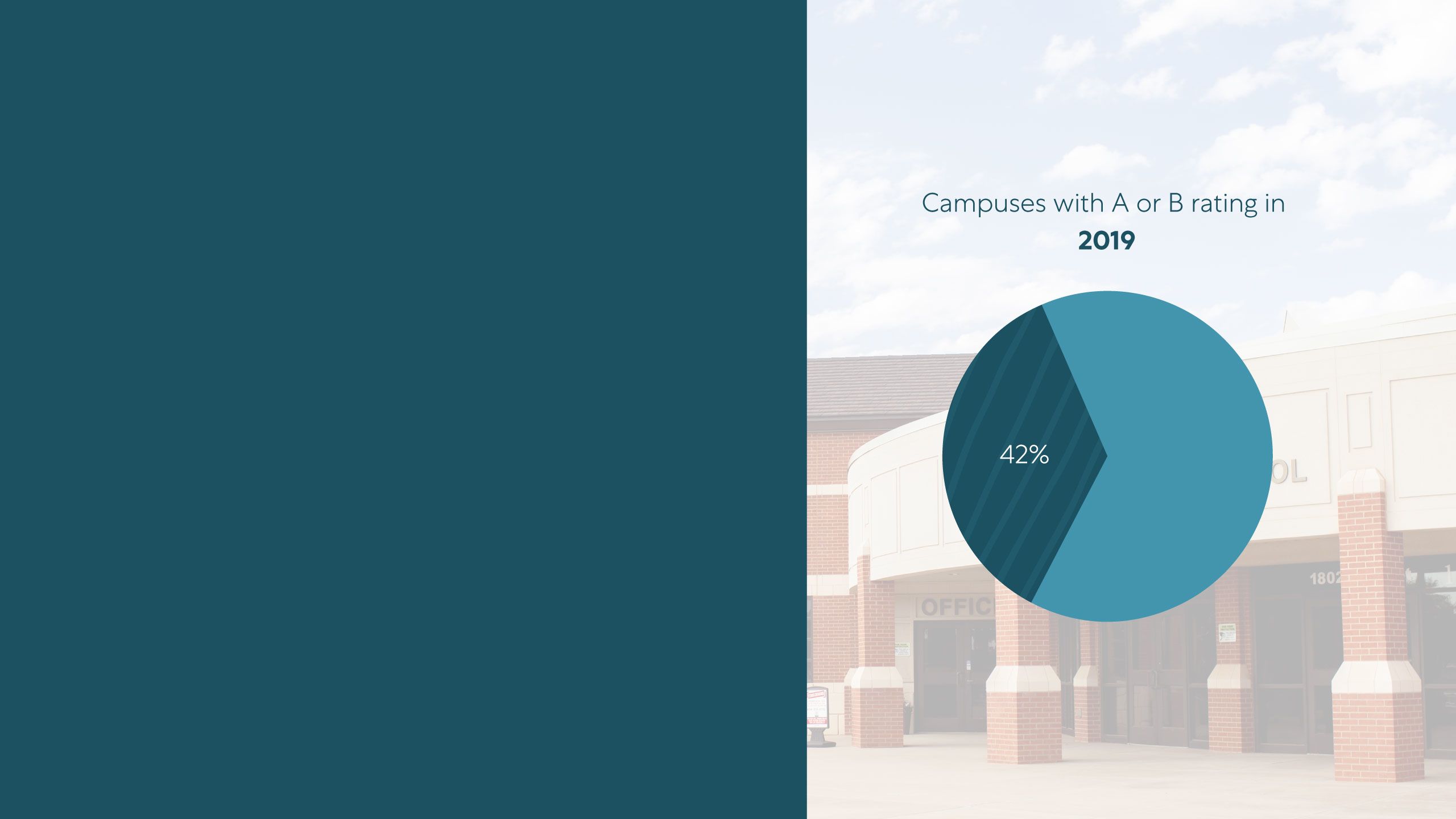
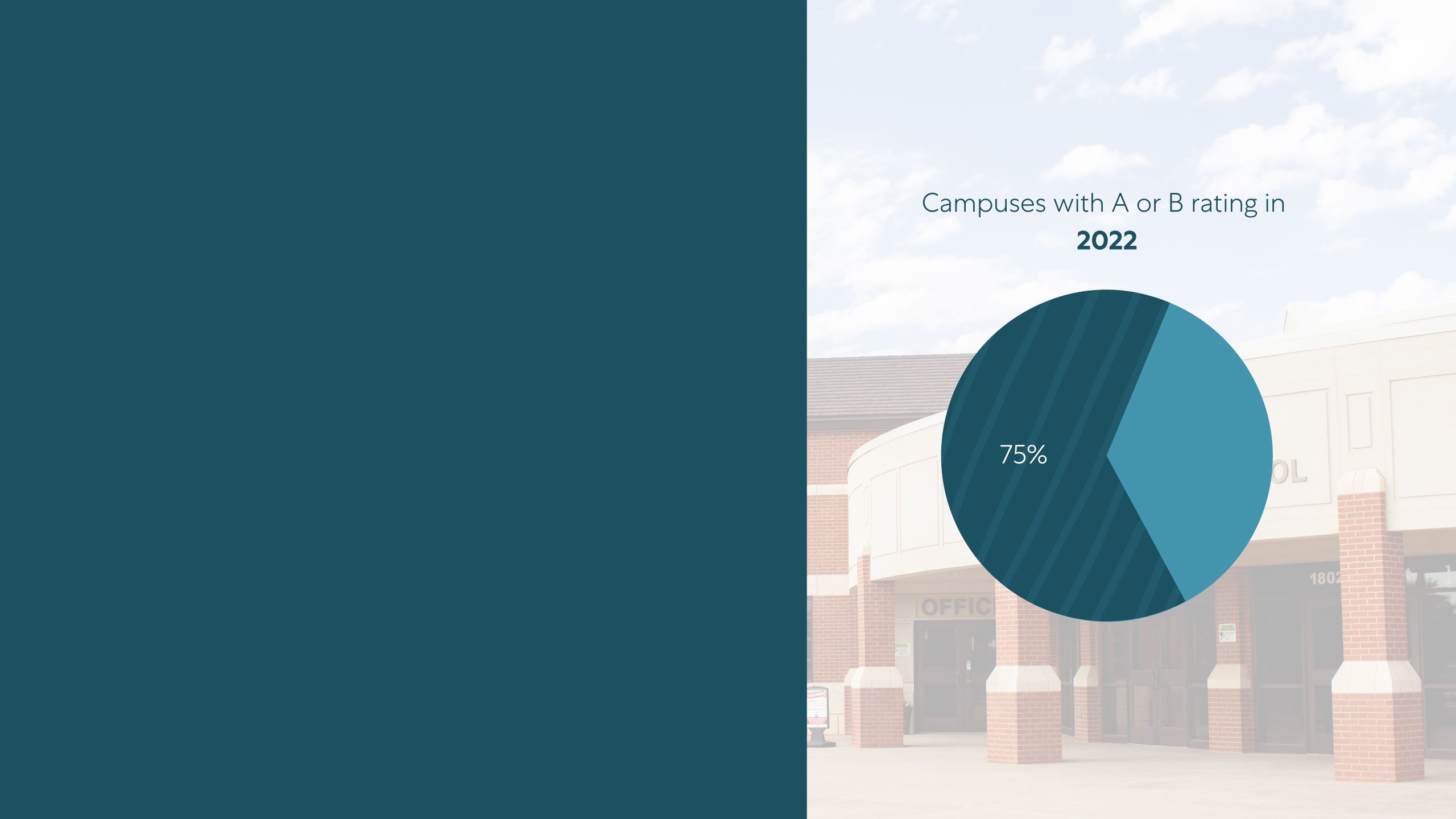
But along with the hits, there have been big wins for students and staff.
In 2019, only 42 percent of students in Lubbock ISD were learning on campuses with an A or B rating by the state.
By 2022, that percentage had risen to 75 percent.
As far as my own growth as superintendent, I have to believe my growth as a leader has been a factor in our success.
But along with the hits, there have been big wins for students and staff.
In 2019, only 42 percent of students in Lubbock ISD were learning on campuses with an A or B rating by the state.
By 2022, that percentage had risen to 75 percent.
“As far as my own growth as superintendent, I have to believe my growth as a leader has been a factor in our success.”
The learning and leadership insights Rollo brought back from Holdsworth have made her whole team stronger, said Rieber and Rodriguez.
You can see it during cabinet meetings, which have gone from being long, boring affairs to lively discussions where staff connect on a personal level, collaborate on work that crosses departmental lines and help each other think through problems they are trying to solve.
What she's doing every day is changing the lives of kids and changing our lives too. We're happy people. We like coming to work. We get up every morning and we enjoy what we do, and she sets that tone for this entire district.
Stay connected to our work with Superintendents across Texas.
